YEEEEEEAAAAAHHHHHH!!!!
The Rubik’s Cube’s 40-year history is full of twists—quintillions and quintillions of them.
![rubiks[1]](https://www.mcha.nl/wp-content/uploads/2015/01/rubiks1.png)
How Ernö Rubik Created the Rubik’s Cube By Noah Davis
At 29, Ernö Rubik was too old to be playing with blocks. But the Hungarian professor of architecture couldn’t help himself: He was fascinated with shapes and spent much of his free time building and perfecting 3-D models. In 1974, a particular project had him stumped. For months, he’d been working on a block made of smaller cubes that could move without causing the whole structure to fall apart. So far, each attempt had failed. The evidence was strewn all over the two-bedroom apartment he shared with his mother.
One spring day, a frustrated Rubik left the apartment and wandered the streets of Budapest. He followed a gentle bend in the Danube River, a path he had walked countless times before. At one point, he stopped to listen to the water lapping ashore and looked down at the polished round pebbles that lined the riverbank. Suddenly, his heart started racing.
Read more
We only have one life. I believe this is a great experience and I don’t want to put it to waste.
Preface
America does not repel the past or what it has produced under its forms or amid other politics or the idea of castes or the old religions . . . accepts the lesson with calmness . . . is not so impatient as has been supposed that the slough still sticks to opinions and manners and literature while the life which served its requirements has passed into the new life of the new forms perceives that the corpse is slowly borne from the eating and sleeping rooms of the house . . . perceives that it waits a little while in the door . . . that it was fittest for its days . . . that its action has descended to the stalwart and wellshaped heir who approaches . . . and that he shall be fittest for his days.
The Americans of all nations at any time upon the earth have probably the fullest poetical nature. The United States themselves are essentially the greatest poem. In the history of the earth hitherto the largest and most stirring appear tame and orderly to their ampler largeness and stir. Here at last is something in the doings of man that corresponds with the broadcast doings of the day and night. Here is not merely a nation but a teeming nation of nations. Here is action untied from strings necessarily blind to particulars and details magnificently moving in vast masses. Here is the hospitality which forever indicates heroes. . . . Here are the roughs and beards and space and ruggedness and nonchalance that the soul loves. Here the performance disdaining the trivial unapproached in the tremendous audacity of its crowds and groupings and the push of its perspective spreads with crampless and flowing breadth and showers its prolific and splendid extravagance. One sees it must indeed own the riches of the summer and winter, and need never be bankrupt while corn grows from the ground or the orchards drop apples or the bays contain fish or men beget children upon women.
Other states indicate themselves in their deputies . . . but the genius of the United States is not best or most in its executives or legislatures, nor in its ambassadors or authors or colleges or churches or parlors, nor even in its newspapers or inventors . . . but always most in the common people. Their manners speech dress friendships—the freshness and candor of their physiognomy—the picturesque looseness of their carriage . . . their deathless attachment to freedom—their aversion to anything indecorous or soft or mean—the practical acknowledgment of the citizens of one state by the citizens of all other states—the fierceness of their roused resentment—their Curiosity and welcome of novelty—their self-esteem and wonderful sympathy—their susceptibility to a slight—the air they have of persons who never knew how it felt to stand in the presence of superiors—the fluency of their speech their delight in music, the sure symptom of manly tenderness and native elegance of soul . . . their good temper and openhandedness— the terrible significance of their elections—the President’s taking off his hat to them not they to him—these too are unrhymed poetry. It awaits the gigantic and generous treatment worthy of it.
The largeness of nature or the nation were monstrous without a corresponding largeness and generosity of the spirit of the citizen. Not nature nor swarming states nor streets and steamships nor prosperous business nor farms nor capital nor learning may suffice for the ideal of man . . . nor suffice the poet. No reminiscences may suffice either. A live nation can always cut a deep mark and can have the best authority the cheapest . . . namely from its own soul. This is the sum of the profitable uses of individuals or states and of present action and grandeur and of the subjects of poets.—As if it were necessary to trot back generation after generation to the eastern records! As if the beauty and sacredness of the demonstrable must fall behind that of the mythical! As if men do not make their mark out of any times! As if the opening of the western continent by discovery and what has transpired since in North and South America were less than the small theatre of the antique or the aimless sleepwalking of the middle ages! The pride of the United States leaves the wealth and finesse of the cities and all returns of commerce and agriculture and all the magnitude of geography or shows of exterior victory to enjoy the breed of full-sized men or one full-sized man unconquerable and simple.
Read more
I made me sick !
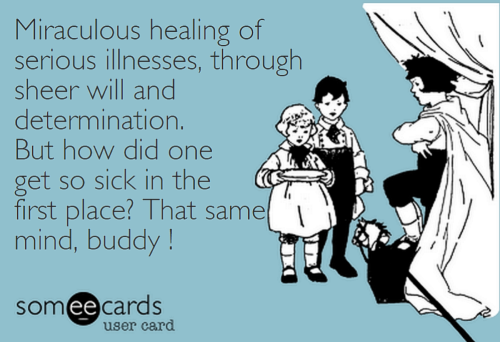
That Intro and Outro really do it for me
To observe and witness either/or
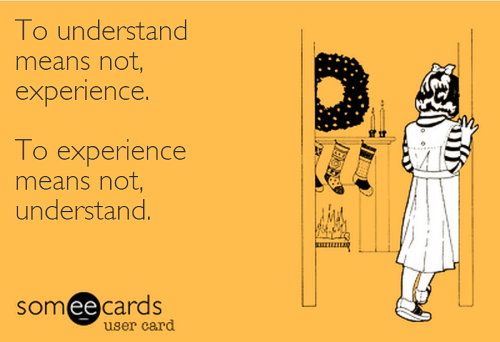
I can … but I won’t
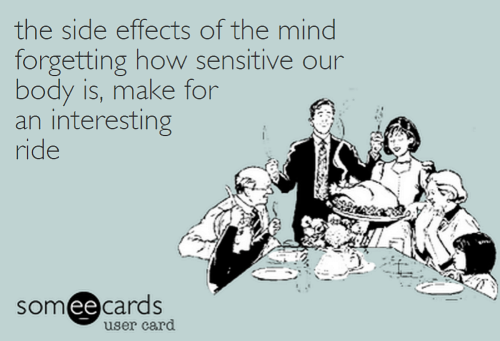
The awareness of universal underlying principles
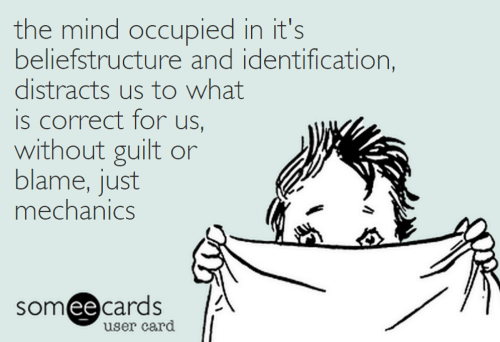
And be our own Dr. Oetker
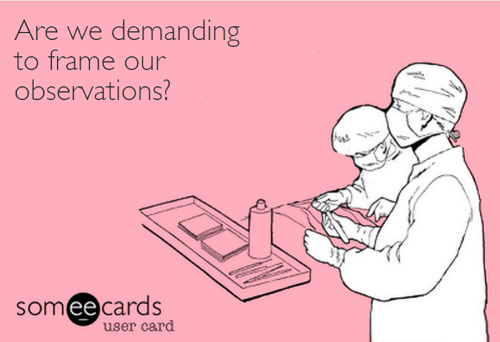
Another view (93)
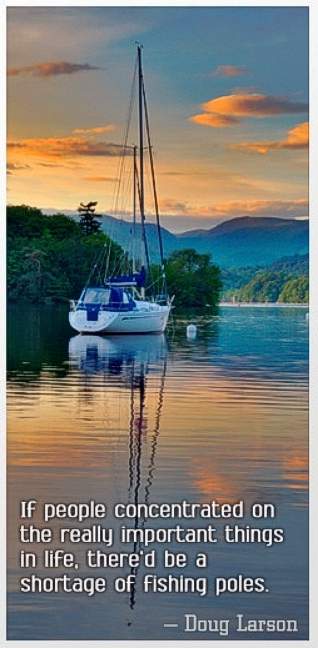
On Conditioning and Openness
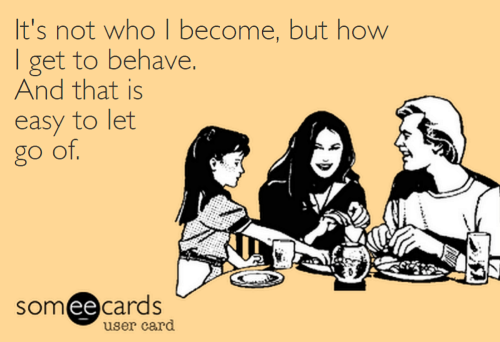
The resistance is strong in this one

Travelling through space and time
The Earth is a very small stage in a vast, cosmic arena.
“That’s here. That’s home. That’s us.
On it, everyone you love, everyone you know, everyone you ever heard of, every human being who ever was, lived out their lives.
The aggregate of our joy and suffering, thousands of confident religions, ideologies, and economic doctrines, every hunter and forager, every hero and coward, every creator and destroyer of civilization, every king and peasant, every young couple in love, every mother and father, hopeful child, inventor and explorer, every teacher of morals, every corrupt politician, every superstar, every supreme leader, every saint and sinner in the history of our species, lived there… on a mote of dust suspended… in a sunbeam.
The Earth is a very small stage in a vast, cosmic arena.
Think of the rivers of blood spilled by all those generals and emperors so that in glory and triumph they could become the momentary masters of a fraction… of a dot. Think of the endless cruelties visited by the inhabitants of one corner of this pixel on the scarcely distinguishable inhabitants of some other corner. How frequent their misunderstandings, how eager they are to kill one another, how fervent their hatreds. Our posturings, our imagined self-importance, the delusion that we have some privileged position in the universe, are challenged by this point of pale light.
Our planet… is a lonely speck in the great, enveloping cosmic dark. In our obscurity, in all this vastness, there is no hint that help will come from elsewhere to save us from ourselves. The Earth is the only world known so far to harbor life. There is nowhere else, at least in the near future, to which our species could migrate.
Visit, yes. Settle, not yet. Like it or not, for the moment, the Earth is where we make our stand. It has been said that astronomy is a humbling and character-building experience. There is perhaps no better demonstration of the folly of human conceits than this distant image.
To me, it underscores our responsibility to deal more kindly with one another and to preserve and cherish the pale blue dot, the only home we’ve ever known.” Carl Sagan – The Pale Blue Dot – Cosmos: A Space Time Odyssey
700 Free eBooks for iPad, Kindle & Other Devices | Open Culture
700 Free eBooks for iPad, Kindle & Other Devices | Open Culture.
Download 700 free eBooks to your Kindle, iPad/iPhone, computer, smart phone or ereader. Collection includes great works of fiction, non-fiction and poetry, including works by Asimov, Jane Austen, Philip K. Dick, F. Scott Fitzgerald, Neil Gaiman, Tolstoy, Dostoevsky, Shakespeare, Ernest Hemingway, Virginia Woolf & James Joyce.
Via Negativa
The way of the Buddha is known as via negativa -the path of negation. This attitude, this approach has to be understood.
Buddha’s approach is unique. All other religions of the world are positive religions, they have a positive goal -call it God, liberation, salvation, self-realization- but there is a goal to be achieved. And positive effort is needed on the part of the seeker. Unless you make hard effort you will not reach the goal.
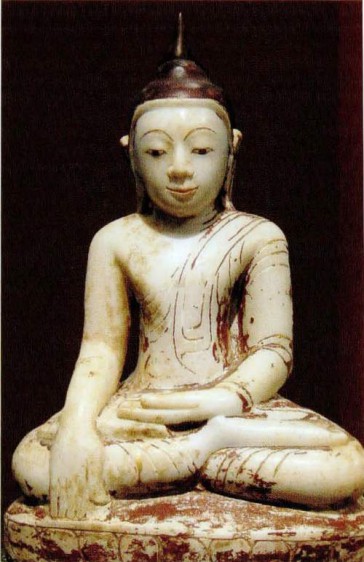
Buddha’s approach is totally different, diametrically opposite. He says you are already that which you want to become, the goal is within you; it is your own nature. You are not to achieve it. It is not in the future, it is not somewhere else. It is you right now, this very moment. But there are a few obstacles and those obstacles have to be removed.
It is not that you have to attain godhood, godhood is your nature-but there are a few obstacles to be removed. Once those obstacles are removed, you are that which you have always been seeking. Even when you were not aware of who you are, you were that. You cannot be otherwise. Obstacles have to be eliminated, dropped. Nothing else has to be added to you.
The positive religion tries to add something to you: virtue, righteousness, meditation, prayer. The positive religion says you are lacking something; you have to be in search of that which you are lacking. You have to accumulate something.
Buddha’s negative approach says you are not lacking anything. In fact, you are possessing too many things which are not needed. You have to drop something.
It is like this: You go trekking into the Himalayas. The higher you start reaching, the more you will feel the weight of the things you are carrying with you. Your luggage will become more and more heavy. The higher the altitude, the heavier your luggage will become. You will have to drop things. If you want to reach to the highest peak, you will have to drop all.
Once you have dropped all, once you don’t possess anything, once you have become a zero, a nothingness, a nobody, you have reached the peak. Something has to be eliminated, not added to you. Something has to be dropped, not accumulated.
When Buddha attained, somebody asked him, “What have you attained?” He laughed. He said, “I have not attained anything, because whatsoever I have attained was always with me. On the contrary, I have lost many things. I have lost my ego. I have lost my thoughts, my mind. I have lost all that I used to feel I possessed. I have lost my body-I used to think I was the body. I have lost all that.
Now I exist as pure nothingness. This is my achievement.” – Osho, Buddha; his life and teachings and impact on humanity
Face it, you’re speechless aren’t you….
These 18 images are proof that when it comes the kingdom of the hipster, there are a few that truly reign supreme and come dangerously close to self-parody…
1.
![SmKNNke[1]](https://www.mcha.nl/wp-content/uploads/2014/12/SmKNNke1.jpg)
Read more
But not seek to be identified with

Addiction
![bye-facebook[1]](https://www.mcha.nl/wp-content/uploads/2014/12/bye-facebook1-800x301.jpg)
What does the shape of a Tree mean?
*sigh*

Your 7 centeredness is having you run the gauntlet
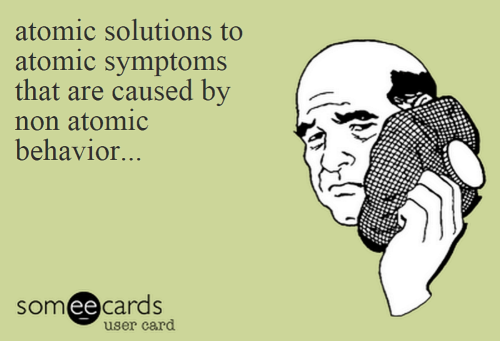
The Danger in Demonizing Male Sexuality

Alyssa Royse explains how our current predator/prey model of sexual relationships is harmful to both men and women.
“I am sorry that generations of lazy storytelling and bad media have perpetuated the myths of men as predators and women as victims. Or the idea that women’s purity is what can redeem the nastiness of male sexuality. It is wrong for both men and women alike. But the only way we’re going to change it is together, and it’s gonna take time. We need to all be better. Oh, hey, I know, we need to come together—if we want to, that is. You can also come alone. Or with someone else. Ain’t no skin off my back, as long as it’s all consensual. And, hopefully, pleasurable.”
Jamie Peck over at The Gloss, wrote a great little piece asking a great big question: Can Men Write About Sex Without Sounding Like Douchebags? In asking, however, she wasn’t pointing at men and suggesting they are douchebags so much as she was pointing at all of us and suggesting that we have a tendency to demonize male sexuality. She rightly points out that most of the men who achieve any sort of status and acceptability in writing about sex are somewhere on the gender queer spectrum. Sure, James Deen has a successful blog, but if you read most of the comments on it, there’s this weird anger at him for being a porn star, and enjoying it and writing about it. It is couched in the assumption that he is just doing what every guy in the world would fantasize about doing, because, you know, the only thing straight guys want to do is pound as much pussy as possible.
Puzzling.
Read more
Advaita
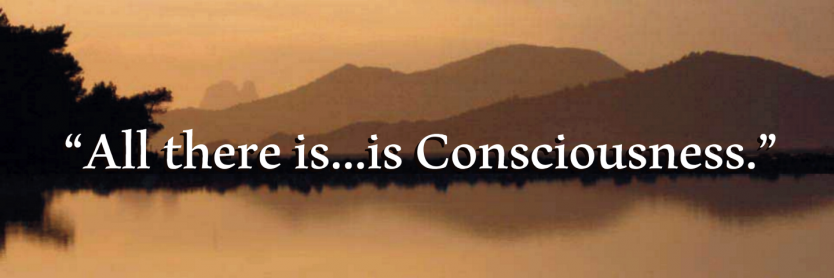
Ik geloof niet in snelle therapieën
Irvin Yalom ‘Ik geloof niet in snelle therapieën’
januari 2009 door Oden. e. (edwin)
Filosofie is de grote inspiratiebron van de beroemde Amerikaanse psychiater Irvin Yalom. Daarmee biedt hij zijn lezers en patiënten geen snelle oplossingen, maar troost en hoop bij existentiële vragen. ‘Juist het besef dat het leven tijdelijk is, helpt ons gelukkig te worden.’
Met zijn ringbaardje en ernstige ogen ziet hij eruit als Sigmund Freud: het archetype van de psychiater.
Irvin Yalom ís ook psychiater. Sterker nog: hij is zo ongeveer de beroemdste psychiater van Amerika. Hij zit ruim veertig jaar in het vak, en werd begin jaren negentig ook wereldberoemd als schrijver. Toen verscheen zijn roman Nietzsches tranen, waarin de filosoof Friedrich Nietzsche in therapie gaat. Sindsdien is Irvin Yalom niet meer weg te slaan uit de bestsellerlijsten. Zijn verhalen over therapeuten en cliënten die antwoorden vinden op de grote levensvragen zijn uit het leven gegrepen, recht uit het hart opgeschreven en daardoor vaak onweerstaanbaar.
Hij is inmiddels 77 en emeritus hoogleraar psychiatrie aan Stanford University, maar wie denkt dat Irvin Yalom rustig geniet van zijn bonsaituin, heeft het mis. Hij spreekt twee cliënten per dag, is mentor voor therapeuten, geeft af en toe les aan studenten, werkt hard aan zijn volgende roman en reist de wereld rond voor de promotie van zijn onlangs verschenen boek Tegen de zon in kijken, over het overwinnen van doodsangst. ‘Geen tijd voor een interview’, zo had hij aanvankelijk in een eenregelig mailtje laten weten. Maar oké, na enig aandringen wilde hij wel anderhalf uur vrijmaken.
Read more
Mindfulness? It’s not enough.
There’s a New Mainstream Out There — and You’re Probably Part of It
Who are the people of The New Mainstream? What do they want? What do they know? What are the economic, social and political implications of this rapidly-rising tide?
![2014-11-12-NewMainstream1-thumb[1]](https://www.mcha.nl/wp-content/uploads/2014/11/2014-11-12-NewMainstream1-thumb1.jpg)
I’ll tell you why I had to write this. I’ve encountered a phenomenon that needs to be shouted from the rooftops. There’s a burgeoning underground narrative going on and it’s time for it to surface. In fact, it astounds me that marketers, business leaders and political strategists have remained unaware. It’s huge.
After being interviewed on hundreds of radio and TV shows during the past three years and listening to at least double that number preparing, I had to ask myself — was there a larger purpose to my experience on all these shows? What was I being shown by The Force? Nearly 300 interviews and 900 shows later, the realization isn’t so startling. It may even seem obvious — yet it needs to be said:
There’s a New Mainstream out there.
You’re probably part of it.
I call it “The Consciousness Crowd.”
Millions of people the world over are part of The New Mainstream. It is defined neither by generation, by politico credo, nor by religious creed. The New Mainstream is defined by recognition that we are in a time of awakening to a new mindset, an expanded worldview and yes, a higher-level consciousness for humanity. The New Mainstream is defined by a cosmic pulse of awakening — a new consciousness!
Read more
Or any length of time you’d wanted to have
An inspiring and profound speech from the late Alan Watts.
Alan Watts audio courtesy of alanwatts.org with permission
Music Used: Goldmund – Threnody
Lecture: Alan Watts – Out of your mind
MoonBlog 5.1 Perseverance
De Vloek moet dicht
een open brief aan wie dit lezen wil. Sommigen zullen het ermee eens zijn, en sommigen duidelijk niet. En anderen op sommige punten wel, en op andere punten weer niet. En dat is wel wat er mist in de meeste debatten, of onderwerpen die in Nederland en daarbuiten soms voorbijkomen: er is helemaal geen debat, er is stellingsname en opwerpen van ‘oneens-baricaden’ en dat is het dan.
Lekker afgescheiden in idealen en mores aan deze of een andere kant, en een enkeling die daartussen schippert. Er is helemaal geen delen van punten en waarden, het is een illusie dat er wordt gedebateerd, want de meesten van ons, welke zijde dan ook, staan helemaal niet open om die ander te horen, of om vanuit diens perspectief dingen te zien. Soms kun je je afvragen of dat sociaal aangeleerd is, of is het een psychische afwijking, of is het mogelijk iets anders?
Er wordt gesteld dat “steeds meer vrijplaatsen en autonome ruimtes worden ontruimd en bedreigd” en ook “Keer op keer moeten vrijplaatsen en autonome ruimtes wijken voor yuppenprojecten” Nu kun je je afvragen hoe werkelijk ‘autonoom’ die ruimtes zijn als er gewoon ook entree wordt betaald, zelfs als dat met Lets is. Maar iets wat haast onopmerkelijk is, en toch blijft na-etteren is de openlijke discriminatie naar bijvoorbeeld yuppen toe. Even buiten de vraag of die groep als zodanig wel bestaat nog in deze tijd. En ook, of de voornamelijk roomblanke jongens en meisjes in die autonome vrijplaatsen dat niet zelf -ook- zijn. Ik begrijp niet, hoe die zogenaamd hoogste idealen gut-mensch het in het warhoofd haalt, om mee te doen aan het uitspelen van groepen en groeperingen.
Read more
There’ll be more
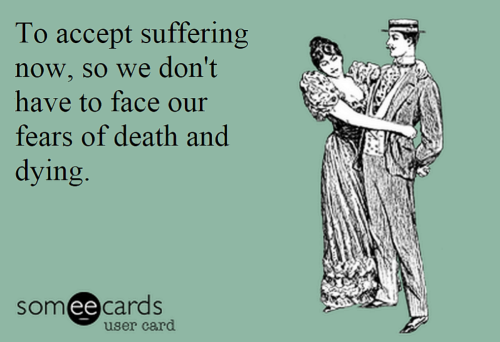
Run that by me again
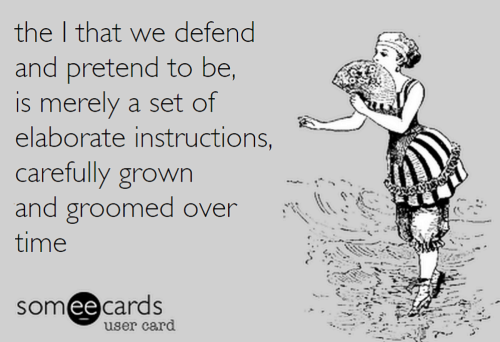
ARE YOU READY?
![Gateless-Gatecrashers[1]](https://www.mcha.nl/wp-content/uploads/2014/09/Gateless-Gatecrashers1-133x200.jpg)
Ready, vigilant and alive, you are there—at the Gate.
Then comes the guide who had crossed before. She takes your hand or slaps your face, depending on what you need, and guides you through the Gate.
You turn back, and see that there is no Gate, there is no crossing, there is no you.
And there never was.
ARE YOU READY?
Another view (72)
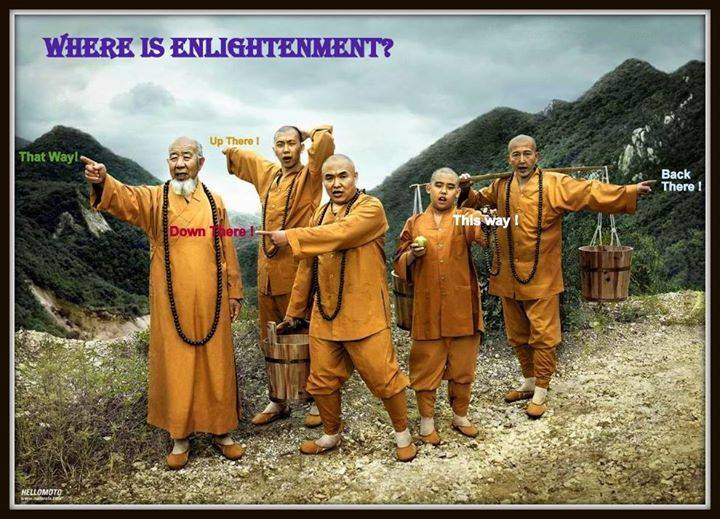
Another view (70)

Living Realization a Conversation with Adyashanti and A.H. Almaas
Many people have experienced some form of realization, such as dissolution of or dis-identification with body or ego and are beginning to recognize themselves as awareness. However, a fully embodied, lived, and expressed realization is another step altogether, and many seekers experience difficulties bridging this gap. What does it take for our understanding to fully penetrate body and mind and to be lived as a permanent reality wholly expressed in the world? How do our ideas of what it means to live life from one’s deepest realization get in the way of actually living it? Which difficulties do we encounter, which delusions and misunderstood ideas, and how do they limit realization itself? Are there useful descriptions of stages to realization, or do they actually hinder the spontaneous unfolding of presence?
Read more
and *BOOM* goes the dynamite

If it requires your belief, it is not true
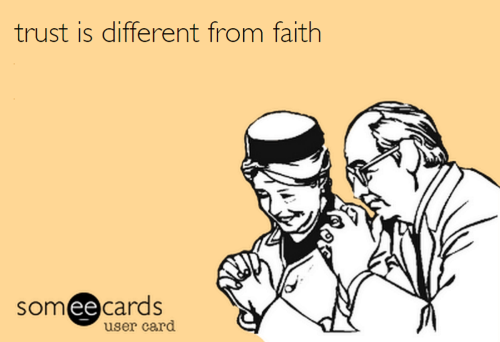
Hate of the Machos: The Nerd | Osho News Online Magazine
Take Chai
“Take chai [tea].”
“But Maharajji, I’ve already had chai.”
“Take chai.”
“Okay .”
“Go take kanna [food].”
“Maharajji, I just ate an hour ago.”
“Maharajji wants you to take kanna now .”
“Okay.”
“Maharajji sent these sweets over for you.”
“But I couldn’t eat another thing.”
“It’s Maharajji’s wish that you have these sweets.”
“Okay.”
“Maharajji sent me to give you chai.”
“Oh, no! Not again!”
“I am only doing my duty. It is Maharajji’s wish.”
“Okay .”
“A devotee has just arrived from Delhi with a large bucket of sweets. Maharajji is distributing it. He wants you to come.”
“Oh, my God, I’ll explode.”
“It prasad.”
“Thank you, Maharajji. (Oh, no, not the apples too!) Ah, thank you, Maharajji.”
While many experienced Maharajji’s qualities of timelessness or love at darshans, everybody who came before him felt his concern that they be fed. Often even before you could sit down he would insist that you “take prasad.” People just never went away from him hungry.
I stopped at a gasoline station in Berkeley, California, run by a Sikh fellow. I thought I’d practice my Hindi with him. When he found out that I stayed at the temple at Kainchi, the first thing he said was, “Oh, you belong to that baba. I visited him. He gave me puris [fried bread]. Nobody else gives you food just for nothing. ”
Many of the poor people in the areas around the temple or on pilgrimages came to depend upon the food that was freely given for their survival; but for the rest of us, such excessive feeding and continuous preoccupation with food seemed to indicate that the food represented some thing more.
My first impressions focused on all the food that was present. I had just come down from Nepal, where I had been on a strict Buddhist meditation trip for a long time, and I saw all these people sitting down and stuffing their faces! I thought, “Oh, they don’t know where it’s at. Look at the gluttons!” Then I sat down to eat . . . and in a few days I was stuffing my face. I had never before experienced such a feeling as that. Literally I could not get enough to eat. It was as if I were feeding my spirit. – Ram Dass, Miracle of Love – Stories about Neem Karoli Baba
Not subtle at all
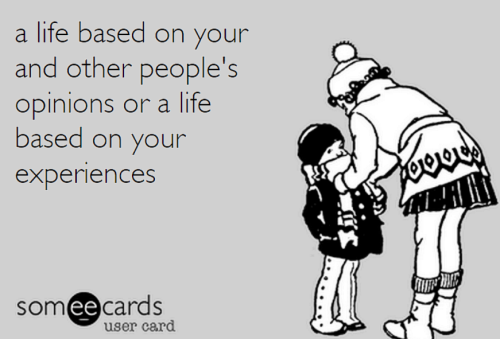
This is such pervasive conditioning, it became our current belief system
The Century of the Self

This series is about how those in power have used Freud’s theories to try and control the dangerous crowd in an age of mass democracy. Sigmund Freud, the founder of psychoanalysis, changed the perception of the human mind and its workings profoundly.
His influence on the 20th century is widely regarded as massive. The documentary describes the impact of Freud’s theories on the perception of the human mind, and the ways public relations agencies and politicians have used this during the last 100 years for their engineering of consent. Among the main characters are Freud himself and his nephew Edward Bernays, who was the first to use psychological techniques in advertising. He is often seen as the father of the public relations industry.
Freud’s daughter Anna Freud, a pioneer of child psychology, is mentioned in the second part, as well as Wilhelm Reich, one of the main opponents of Freud’s theories. Along these general themes, The Century of the Self asks deeper questions about the roots and methods of modern consumerism, representative democracy and its implications. It also questions the modern way we see ourselves, the attitude to fashion and superficiality.
Happiness Machines. Part one documents the story of the relationship between Sigmund Freud and his American nephew, Edward Bernays who invented Public Relations in the 1920s, being the first person to take Freud’s ideas to manipulate the masses.
Read more
MoonBlog 38.4
Some people have this sense that they are not the killer monkeys some of us claim we all are, as a species.
And I get this sense that those people are indeed not, how they are not the hierarchic killer mob, not the follow the leader do as I say kind of monkeys, whether that leader has been voted in democratically or the role has been taken by force or corruption. Where each individual has a specific role and place, and all are wanted and needed, and sacrifices are made, consciously for the common good of the group, this ‘ruff n tuff’ looking band of killer monkey brothers and sisters,
but they are killer bunnies….
Read more
Bleed me beat me kill me take me now
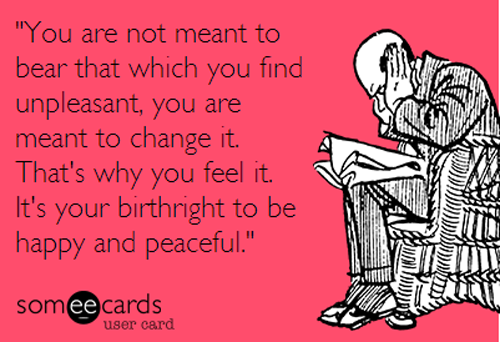
Wait for clarity
One day Buddha is passing through a forest. It is a hot summer day and he is feeling very thirsty. He says to Ananda, his caretaker, “Ananda, you go back. Just three, four miles back we passed a small stream of water. You bring a little water-take my begging bowl. I am feeling very thirsty and tired.”
Ananda goes back, but by the time he reaches the stream, a few bullock carts have just passed through the stream and they have made the whole stream muddy. Dead leaves that had settled into the bed have risen up; it is no longer possible to drink this water-it is too dirty. He comes back empty-handed, and he says, “You will have to wait a little. I will go ahead. I have heard that just two, three miles ahead there is a big river. I will bring water from there.”
But Buddha insists. He says, “You go back and bring water from the same stream.”
Ananda could not understand the insistence, but if the master says so, the disciple has to follow. Seeing the absurdity of it that again he will have to walk three, four miles, and he knows that water is not worth drinking-he goes.
Read more
Without a trace of a shadow of a doubt
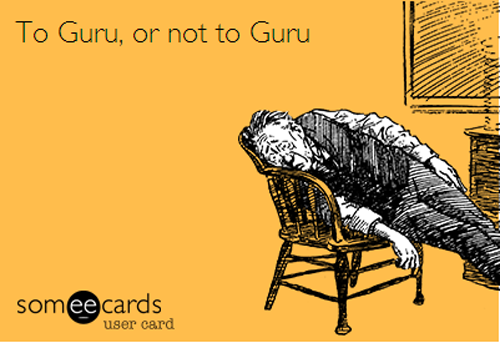
The Ancient Art of Contemplation
“If I had to say in a single line what the Gene Keys are, I would say they are a universal language made up of 64 genetic archetypes. If I had to say what the Gene Keys do, I would say they allow you to completely re-envision yourself and recreate your life at a level limited only by your own imagination. The Gene Keys are also a transmission. In Buddhism there is a wonderful word known as ‘dharma’. It is one of those words pregnant with many dimensions of meaning. It points towards the existence of a higher truth or universal law pervading the universe. Because the realisation of the dharma is beyond words, its transmission can only be received through silence and deep meditative absorption. The Gene Keys are just such a transmission. As archetypes they each contain a fractal aspect of the same universal Truth. As genetic archetypes they allow you to resonate that Truth deep within each cell of your body.
This brings us to a very important point that you must know before you enter the living dharma-field of the Gene Keys. Because the Gene Keys are a transmission beyond words, they will not yield their secrets to an intellectual, grasping mind. The more you chase after them with your mind the more frustrated you may become. As archetypes, the Gene Keys are designed to be contemplated, and contemplation demands relaxation and patience. Contemplation is one of the greatest and least understood of the ancient mystical arts and paths.
Read more
For most people, the enlightenment drive

awakens first through the head center, as what I call the “thought of enlightenment.” This is the usual entrance—the idea that there is such a thing as enlightenment, that there is the possibility of a spiritual life or experience and, simultaneously, the interest and motivation to pursue some kind of practice or seek some kind of teaching. The idea of enlightenment and the interest in enlightenment moves us toward the freedom and the experience of the quality of life with its higher values. For most people, that is how it begins, that is how the enlightenment drive wakes up.
However, if the heart is not involved in the drive toward truth, then the enlightenment drive doesn’t have adequate juice or fuel. When the drive wakes up in the heart center, it appears as love, compassion, and the irresistible passion for the truth of inner life. We experience this as love for truth, love for God, love for reality, or as compassion for the suffering of ourselves and others and the desire to do something about it, the recognition of the need to wake up, to be real, to make a difference. All these are different manifestations of service.
Opening Doors
‘For millennia, man has tried to solve his problems in the external world.
The first step towards clarity is the understanding that all problems lie within.
The second step is the realisation that the problems cannot be fixed.
The third step is the relief that floods us once the second step is over’ – Richard Rudd
No fear is real
‘You have anxiety and fear. Anxiety is focused on an object, such as a lion or a great height or a terrorist. You’re scared, but you can relate by thinking about it or avoid it. Fear is a very different emotion: the object is missing, it is purely a sense that something bad might happen. Fear comes from your imagination. If you ride through a dark forest, your imagination starts working. Then you start to imagine that behind that tree a wolf or a rapist is hiding.’
‘Geen enkele angst is reëel. Je hebt angst en vrees. Vrees is gericht op een object, zoals een leeuw of een grote hoogte of een terrorist. Je bent er bang voor, maar je kunt je ertoe verhouden door erover na te denken of het uit de weg te gaan. Angst is een heel andere emotie: het object ontbreekt, het is puur een gevoel voor iets naars dat zou kunnen gebeuren. Angst komt voort uit je eigen verbeelding. Als je door een donker bos fietst, gaat je fantasie werken. Dan ga je je verbeelden dat zich achter die boom een wolf of een verkrachter schuilhoudt.’
http://www.vn.nl/Archief/Samenleving/Artikel-Samenleving/Psychiaterfilosoof-Damiaan-Denys.htm